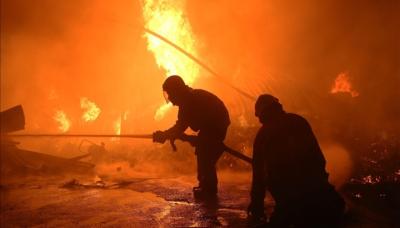
Fire in Cairo telecom hub…
A major fire at a Telecom Egypt building in downtown Cairo injured 22 people and caused widespread disruptions to internet, phone, transportation, and emergency services across the country.
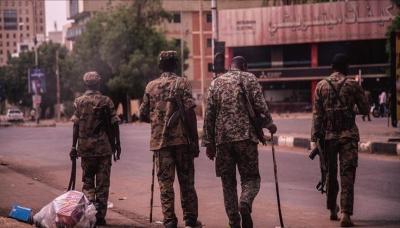
South Sudan's Anti-Gang Crackdown Spirals
A government crackdown in Juba has led to the arrest of over 800 youths in South Sudan, sparking allegations of forced conscription, deaths in custody, and widespread human rights violations.
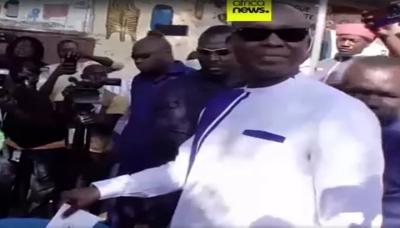
Chad’s Former Prime Minister Appeals…
Chad’s opposition leader Succès Masra, held in pre-trial detention for two months over accusations of involvement in a 2025 massacre, denies the charges and calls them politically motivated. His lawyers accuse the government of pressuring the judiciary and have appealed to French President Macron for international intervention, citing bias and violations of Masra’s rights.

Two Arrested in South Africa…
Two suspects have been arrested in South Africa over the US$4 million armed robbery at Ecobank in Bulawayo last year and now face extradition to Zimbabwe, as cross-border investigations into the high-profile heist continue.
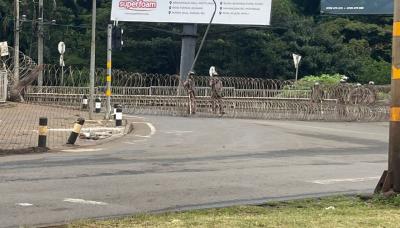
Tight Security in Nairobi as…
Security forces in Nairobi have sealed off key roads and deployed heavily ahead of Saba Saba protests targeting President Ruto’s government over economic grievances and corruption.
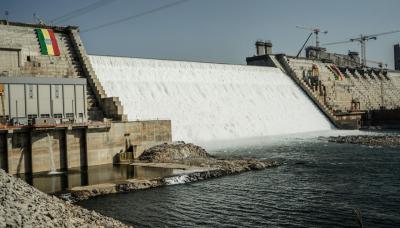
Ethiopia Announces Completion of Grand…
Ethiopia has completed the Grand Renaissance Dam, a major energy project that has heightened tensions with Egypt over Nile water rights, as regional talks on a binding agreement remain unresolved.

Angélique Kidjo Becomes First Black…
Angélique Kidjo has become the first Black African artist selected for a star on the Hollywood Walk of Fame, recognising her decades-long musical career and global advocacy.

Bryan Kohberger Pleads Guilty in…
Bryan Kohberger pleaded guilty to the 2022 murders of four University of Idaho students, avoiding the death penalty but receiving four life sentences without parole.

Tems Launches ‘Leading Vibe Initiative’…
Tems has launched the Leading Vibe Initiative to support and empower young African women in music through mentorship, training, and industry access, beginning this August in Lagos.
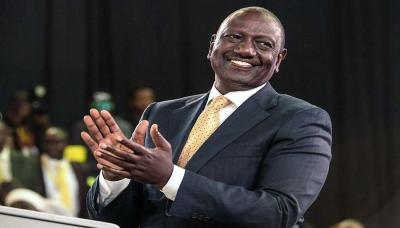
Kenya to Privatise State Assets
Kenya will begin privatising state-owned enterprises through IPOs, starting with the Kenya Pipeline Company, as part of efforts to attract investment, reduce debt, and strengthen capital markets.
Top Accolade News – Your Daily Source for Trusted UK & Global News
Welcome to Top Accolade News, your destination for fast, clear, and reliable news. Whether you're at home or on the go, we bring you Top Accolade News stories that matter, all in one place. No fluff, just facts that keep you informed.
Local News Headlines in UK – Real Stories, Real Impact
Stay related to what's happening around you. Our Local News Headlines in UK section covers community updates, public interest stories, and events that shape daily life straight from trusted sources across the country.
Today International News in UK – Global Stories That Matter
From politics to world events, our Today International News in UK keeps you aware of major happenings worldwide. We bring you important developments with simple reporting that’s easy to understand and follow.
Latest Global News Updates – Timely and Clear
Get the world headlines and never miss out. Our Latest Global News Updates are the right reporting about what is really happening around the world but in a straightforward manner without all in-between efficiencies that waste your time.
Latest Sports News in the UK – Scores, Highlights & More
Love sports? Our Latest Sports News in UK brings all the action in football, cricket, tennis and more. Be updated with new news and game outcomes in the world of sports.
Top Accolade News: Where clear news meets trusted reporting. We bring facts first, so you always stay informed, always.










